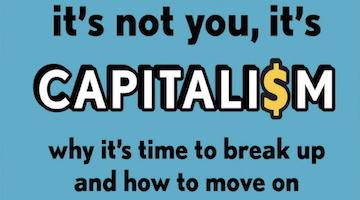LeftRoots’ stated purpose: to strategize around “21st-century socialism” and then bring people together to help get there.
“LeftRoots’ membership includes ‘super-majorities both of people of color, and of women and other gender-oppressed people.’”
One evening in late May, upward of 50 grassroots organizers from different groups around the country gathered at a union hall in Dorchester, Mass. They were grappling with some of the Left’s age-old questions: In a future where the Left wins political power, what would we like to see happen? And more pragmatically: What would it take to get there?
A local community organizer sets the scene: “It’s 2019. Burning issues are facing our communities.” She lists off galloping inequality, a trigger-happy white nationalist movement, looming environmental disaster. It’s urgent, she says, to do “more cross-fertilization work” to harness progressive forces (like the striking teachers around the country) to build solidarity across issues.
This discussion of base-building to include more different types of people is typical of many Left gatherings. But what’s noteworthy is the faces in the room, who reflect the kind of diverse base the Left has aspired to build for decades.
“It’s vital that any movement to transform the world be rooted in the struggles of working-class communities of color.”
That’s by design. The meeting host is LeftRoots, a five-year-old socialist group that offers a hub for on-the-ground organizers around the country to strategize together.LeftRoots’ membership includes “super-majorities both of people of color, and of women and other gender-oppressed people.” Co-founder NTanya Lee says this isn’t “just a racial critique that the contemporary U.S. Left is too white” (though “that is a fact,” she adds). Instead, it’s vital, she says, that any movement to transform the world be “rooted in the struggles of working-class communities of color who are the ones who have the most at stake in defeating the system and winning the liberation that we really want.”
In the American political imagination, talk of the working class still conjures an image of gruff, salt-of-the-earth white men in the Rust Belt. While they’re certainly out there, at 59% of 25–64-year-olds, white people (and white men, especially) make up a declining share of the working class. The Economic Policy Institute projects that, by 2032, a majority of the American working class will be people of color. Women already make up nearly half of working-class adults in the country at 46%.
“By 2032 a majority of the American working class will be people of color.”
That LeftRoots even exists might send much of established media stumbling back on their heels. The chattering classes have been quick to interpret the surging interest in socialism as a fad for a loud (but small!) band of white millennials. (A snarky New York magazine piece published in March reports on the silly quirks of the “young socialist power elite” in Brooklyn, who supposedly live on Twitter and believe socialism to be “sexy” without really knowing what it means.)
Of course, there’s a long history of socialism in communities of color in America, from what historian Roxanne Dunbar-Ortiz calls pre-colonial “indigenous socialism” (and its radical heir, the American Indian Movement) to spirited traditions of Chinese American socialism in San Francisco in the early 20th century and the radical Chicano movements of the Southwest in the late 20th century. Black socialists have been a pain in the ass to many of their white counterparts for more than a century, relentlessly insisting that white supremacy is chief among the Goliaths that socialism must slay. In a 1913 essay, noted socialist W.E.B. Du Bois famously described “The Negro Problem” as “the great test of the American Socialist.”
Lee launched LeftRoots in 2014 with a crew of three other San Francisco Bay Area organizers who thought the political Left was failing to bridge the gap between urgent, daily, in-the-trenches action and a longer-term vision and strategy. “It wasn’t enough to cross our fingers and be like, ‘One day this shit is all going to get connected and we’re going to win,’ ” says Lee, 50, the former executive director of San Francisco-based community organizing group Coleman Advocates.
It’s worth emphasizing what LeftRoots is not. LeftRoots does not initiate or run campaigns, whether issue-based or electoral, like the Democratic Socialists of America and many other socialist groups. Nor does it organize protests. LeftRoots’ focus is simply on its stated purpose: to strategize around “21st-century socialism” and then bring people together to help get there.
LeftRoots offers regular branch meetings and other training events. Members also work through an online curriculum they call the Little Red School, covering topics from political economy to cultural hegemony to strategies for building organizational power. This breadth is also apparent in LeftRoots’ Out to Win! journal. At 150 pages, it makes references from Engels and Marx to American Idol, includes quotes from Paulo Freire to Langston Hughes and Grace Lee Boggs, and explores ideas from cis-heteropatriarchy to neoliberalism, all while citing sources and marking points of debate.
“Black socialists have been a pain in the ass to many of their white counterparts for more than a century.”
Today, LeftRoots has more than 200 members spread across seven branches—Boston, Philadelphia, New York, the Bay Area, Los Angeles and two at-large branches that meet online. While their numbers may seem small, their influence is multiplied by the simple fact that nearly everyone is already involved in other grassroots work aimed at improving their communities. Members say LeftRoots has deeply informed that work.
Sometimes when you’re in the day-to-day of the work, you’re [only] focused on what’s right in front of you,” says Mike Leyba, 31, an electoral strategist and organizer in Boston who sits on the LeftRoots National Coordinating Committee. It’s LeftRoots’ job “to zoom out and … see where our potential for really strategic action is.”
Leyba, who spent his formative years in Compton, Calif., became a political organizer in 2008, when he joined the fight against a California ballot proposal banning same-sex marriage. He joined LeftRoots in April 2016. For Leyba, LeftRoots has “really honed my political strategy around electoral work.” Since 2010, he has staffed or managed four local electoral campaigns in Massachusetts and California, including state house races and a Boston mayoral campaign.
“If I weren’t a part of LeftRoots, I probably would be much more cynical about working in electoral politics,” Leyba says. “If progressive candidates, once elected, don’t always deliver,” he says, the feeling becomes, “I worked so freaking hard for this person and they didn’t do shit for me or my people, and we’re still in crisis.”
“LeftRoots has more than 200 members spread across seven branches.”
But Leyba says LeftRoots helped him see that electoral campaigns can be a way to build a socialist base, regardless of the election’s outcome or how the official performs once elected. For example, Leyba “deep canvasses” Boston neighborhoods; rather than just reciting a candidate’s biography to potential voters, he now asks questions rooted in race and class, such as, “When was the last time you got a rent increase?” Those conversations can spin out into deeper discussions about rent control or funding public schools. He says “It’s putting an ear to the ground and seeing where people are at. Where are they feeling the squeeze? Where should we be focusing our energy? Where is the transformative potential?
“Now multiply this by tens of thousands of conversations. You’re able to see much bigger than any particular candidate. Whoever wins will have very real limits on their power. But there aren’t the same limits on social movements.”
Paige Kümm, 32, another member of the LeftRoots National Coordinating Committee, serves as a national organizer with Right to the City, an alliance of social justice organizations that aims to offer “a unified response to gentrification” nationwide. At a March staff retreat in Brooklyn, Right to the City discussed LeftRoots’ newly expanded working definition of class, laid out in the first issue of Out to Win. Here, LeftRoots sees potential allies for working-class issues in the lower tiers of the ownership class, like taxi drivers and corner store owners. While the upper layer of capitalists (“the executives, board members and major shareholders”) may fight socialist change tooth and nail, this lower-tier group still faces significant hardship and could be moved to join a movement to redistribute wealth and power.
“Electoral campaigns can be a way to build a socialist base, regardless of the election’s outcome.”
LeftRoots’ layered definition of class helped Right to the City “better understand the layers of the working class,” says Kümm. Some homeowners may technically be landlords, in that they rent to tenants and depend on rent to make their payments to the bank, but these homeowners are still “bank tenants,” as Kümm describes them, who face foreclosure if they fall on hard times. LeftRoots’ definition was a helpful reminder to not pit these homeowner-tenants against subtenants, Kümm says, since both have interests in fighting the power that banks have to make them homeless.
“We’re trying to better understand: What are the different strata of the working class and how can we speak to their interest?” Kümm says. “How can we make them feel like they are a part of this movement?”
There are two ways to join LeftRoots, which holds no membership drives and no purity tests beyond its “points of unity,” which includes notes like “socialism is the future” and “the planet is not a commodity.” The first is as a “compa” (from the Spanish for “friend”), an ongoing financial and political supporter, important for an organization that doesn’t apply for philanthropic foundation grants.
The second way to become a member is by invitation only. To be eligible, you must complete the General Baker bootcamp, named after a giant of Black socialist organizing in Detroit. In one-day sessions over eight weeks, held simultaneously around the country and online, participants share their ideas about socialism and their own journeys as activists. Afterward, some are invited to become full-fledged members, called cadre.
That word, “cadre,” may be off-putting for those who remember it mainly as a description of various leftist factions with top-down leadership structures, the kind that aspired to be revolutionary vanguards—an elite tier supposedly most qualified to lead radical change—in the 1960s and 1970s. These groups based themselves on a particular interpretation of socialist theories of change in which a leadership role in working-class politics was guaranteed by devotion to a particular ideology and intellectual rank, rather than earned by a practice in mass struggle to help forge and unleash the power of workers and oppressed peoples.
“What are the different strata of the working class and how can we speak to their interest?”
Most on the Left now reject that particular version of cadreism as both fundamentally anti-democratic and doomed to failure—and the dozen or so LeftRoots cadres I spoke with agree. They use the term in a much more generic sense, to mean the activists who believe in a political project; devote a considerable portion of their time, energy and talent to moving it forward; and are serious about developing the intellectual and practical skills to do so effectively. Thus they see no contradiction between the importance of developing revolutionary cadre and rejecting the vanguardist practices of the past. In fact, the LeftRoots website has an explicit “against vanguardism” section: “Challenging the practice of many 20th century cadre organizations on the Party Left, we reject the vanguardism and the associated practices of operating secretly within mass organizations while trying to control them; creating front groups; or being opportunist and leeching onto authentic mass struggles to avoid doing the long hard work of building a real base.”
LeftRoots insists that “the people that are doing the strategy” should be “really grounded in the work,” Leyba says. “Otherwise, you’re just an armchair activist and we don’t need more of those.”
Instead, LeftRoots refers to a cadre as a committed member who “willingly makes sacrifices, learns skills and plays roles that are required in order to fight for the change we wish to see.” Here, “cadre” acts as a small way to highlight, yet again, that isolation can be overcome, because the walls that separate those who are hungry for an egalitarian world are thinner than they imagine.
“LeftRootssees no contradiction between the importance of developing revolutionary cadre and rejecting the vanguardist practices of the past.”
LeftRoots doesn't see itself as the final home of this 21st-century socialism.Rather, it is “attempting to lay the groundwork for the launching of a political instrument in the future,” Kümm says. LeftRoots, she says, is a way to “train up social movement leftists to be prepared to take part in the launching of that political instrument.” LeftRoots folks are candid about how far the Left has to travel before it can flex its political muscle the same way as robust cadre movements of the past (the radical Black socialist autoworkers in Detroit in the late 1960s and 1970s, for example). But LeftRoots intends, after a couple years of rigorous study, experimentation and analysis, to draw a clearer picture of the sorts of vehicles the Left needs to bring its vision to life.
In that union hall near Boston (which LeftRoots requested not be named, out of “an abundance of caution” about redbaiting), close to 100 area organizers also participated, representing groups like City Life/Vida Urbana, Dominican Development Center, New England United for Justice, Boston Liberation Health and Right to the City Boston, groups fighting for everything from racial, economic and environmental justice to land, labor and housing rights.
The discussion closed with long-term questions: Should the Left prepare to launch a third party or commit to a takeover of the Democratic Party? And speaking of takeovers, how cool would it be if workers in weapons factories just took the damn things over and retrofit them for green purposes?
After decades in the political wilderness, the American Left is aware of the obstacles to a more egalitarian world. But in rooms like this, where political imagination and analytic rigor walk hand in hand, you can see possibilities unfold, a tapestry of radical hopes and ideas. In an increasingly desperate moment, it’s a refreshing revival: an old socialist tradition being built upon and refined and expanded to ensure meaningful participation for all, particularly working-class communities—of color, especially.
Eli Day is an investigative fellow with In These Times' Leonard C. Goodman Institute for Investigative Reporting. He is a writer and relentless Detroiter, where he writes about politics and policy. His work has appeared in the Detroit News, City Metric, Huffington Post, The Root, Truthout, and Very Smart Brothas, among others.
This article previously appeared in Portsideand In These Times.
COMMENTS?
Please join the conversation on Black Agenda Report's Facebook page at http://facebook.com/blackagendareport
Or, you can comment by emailing us at comments@blackagendareport.com



















